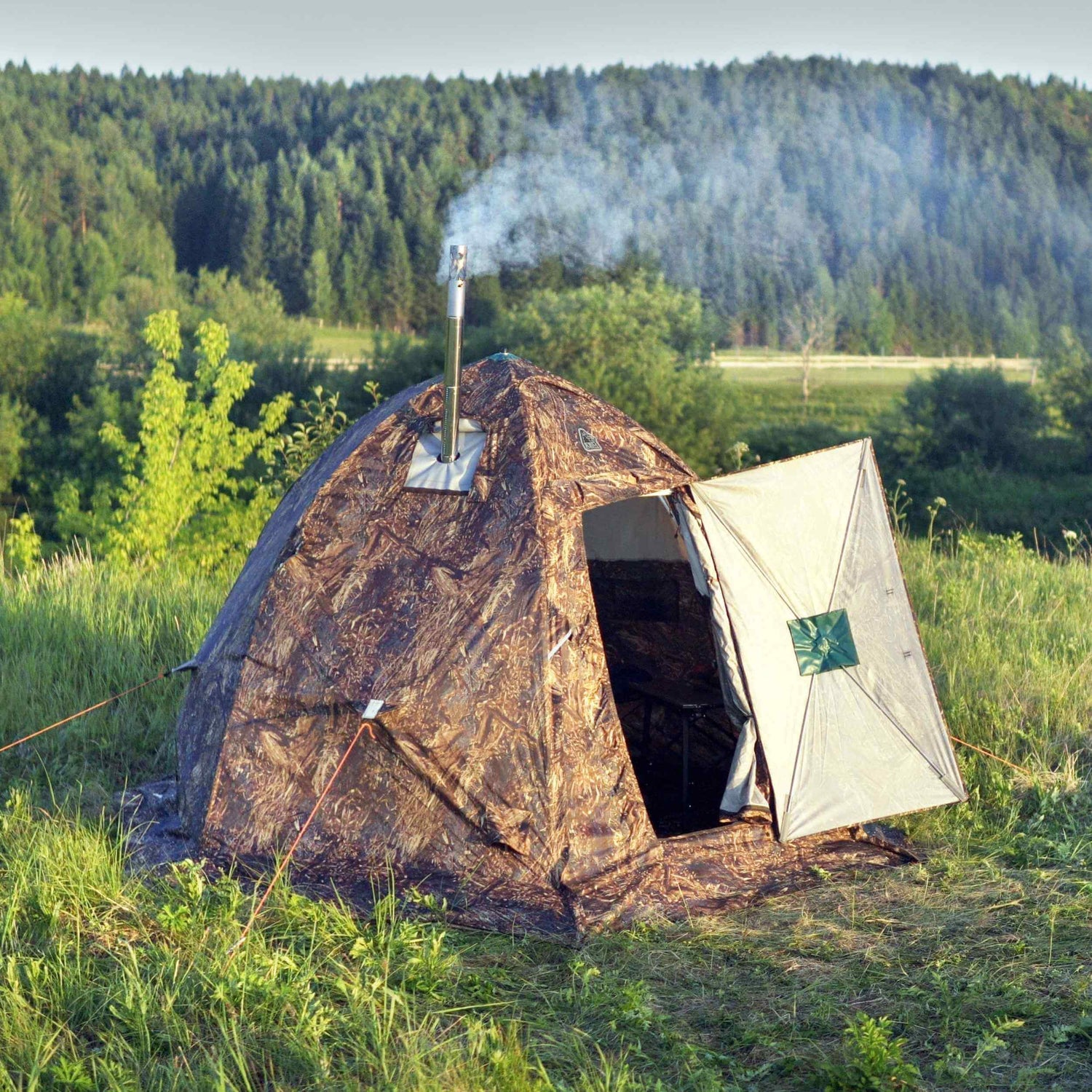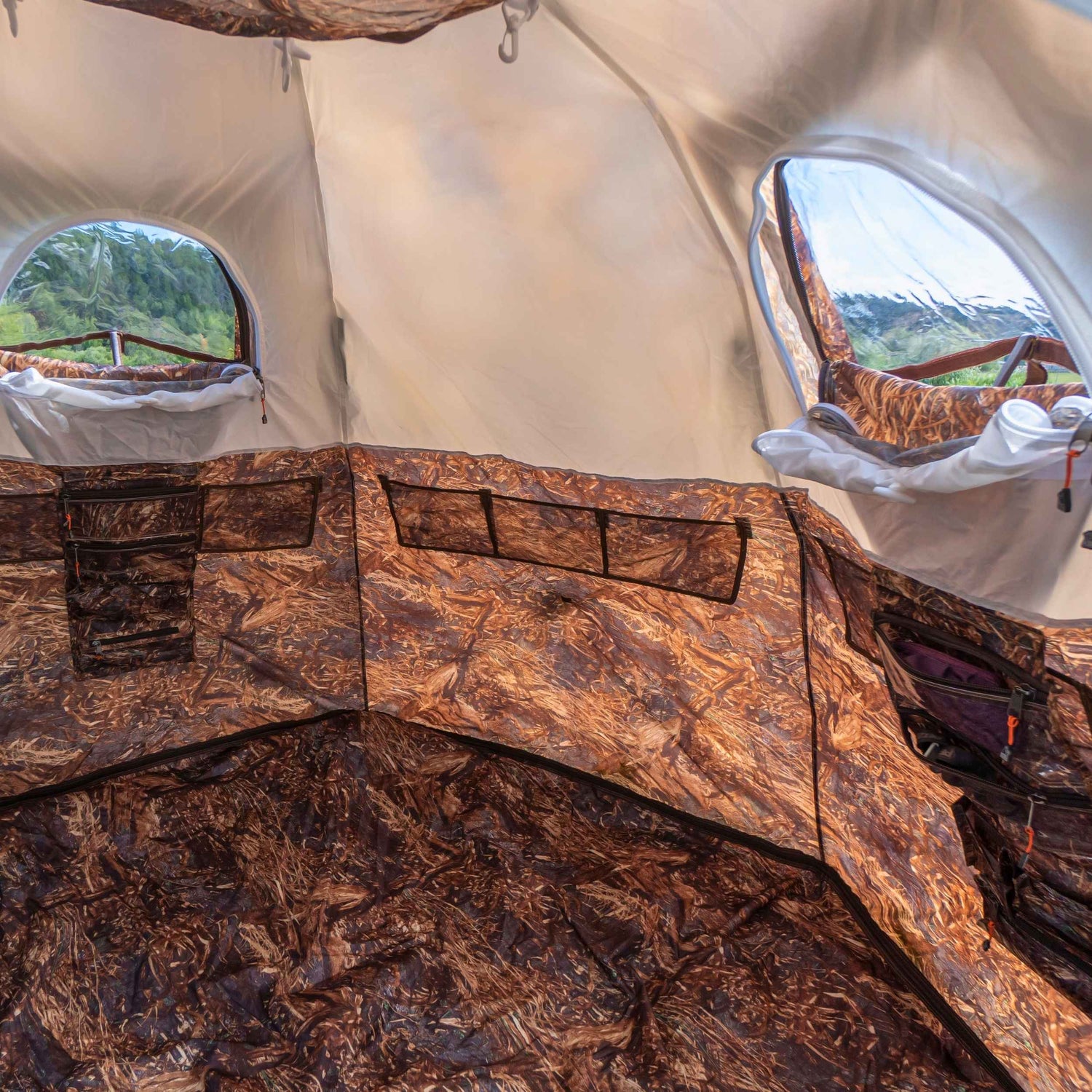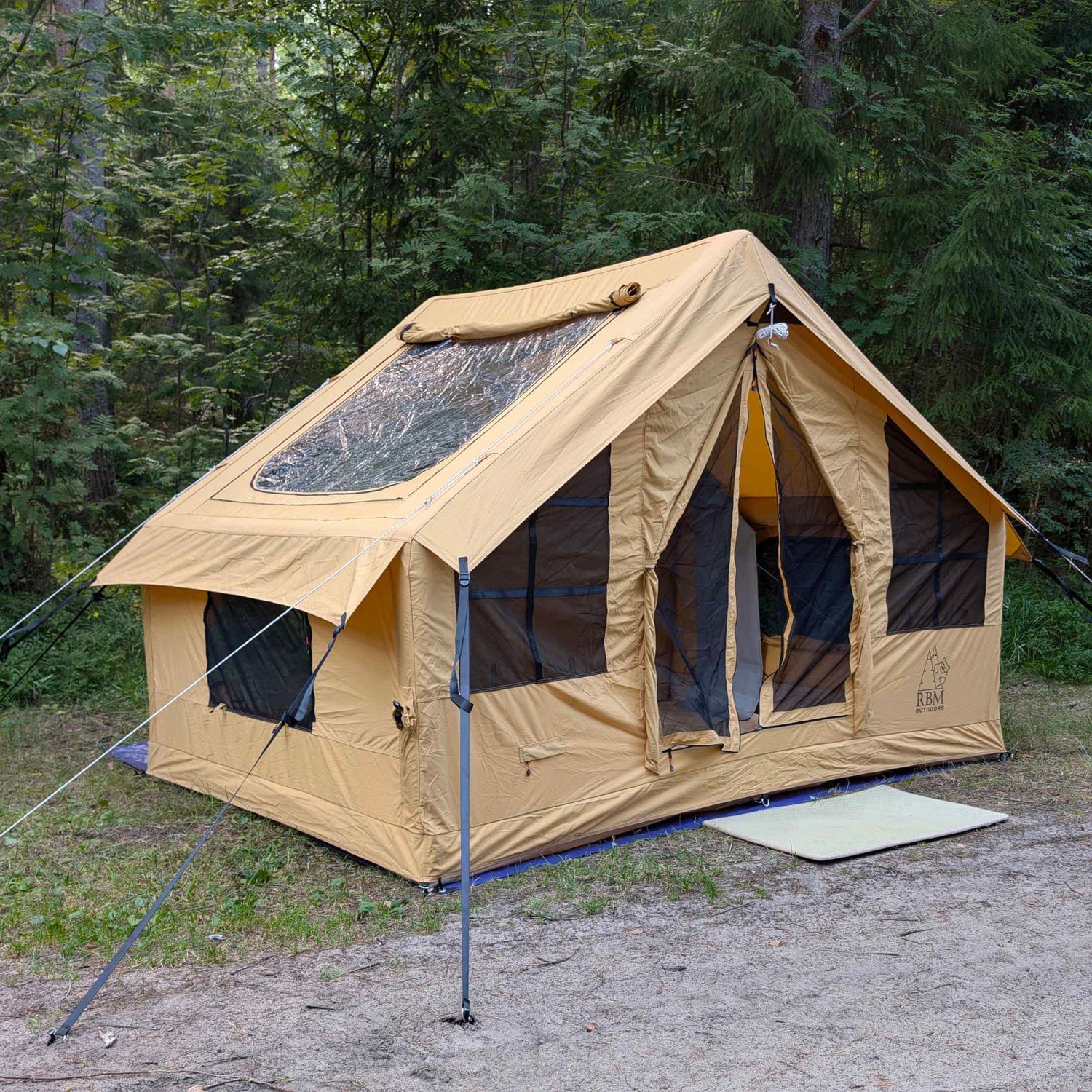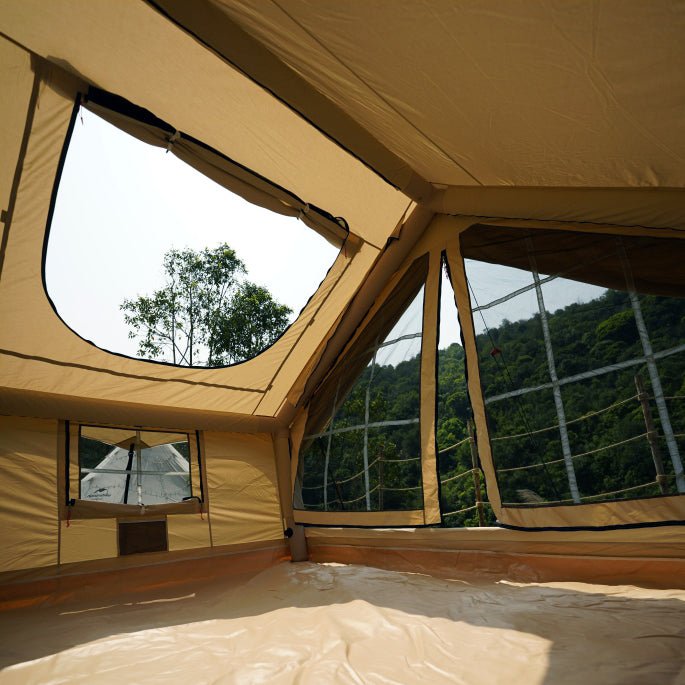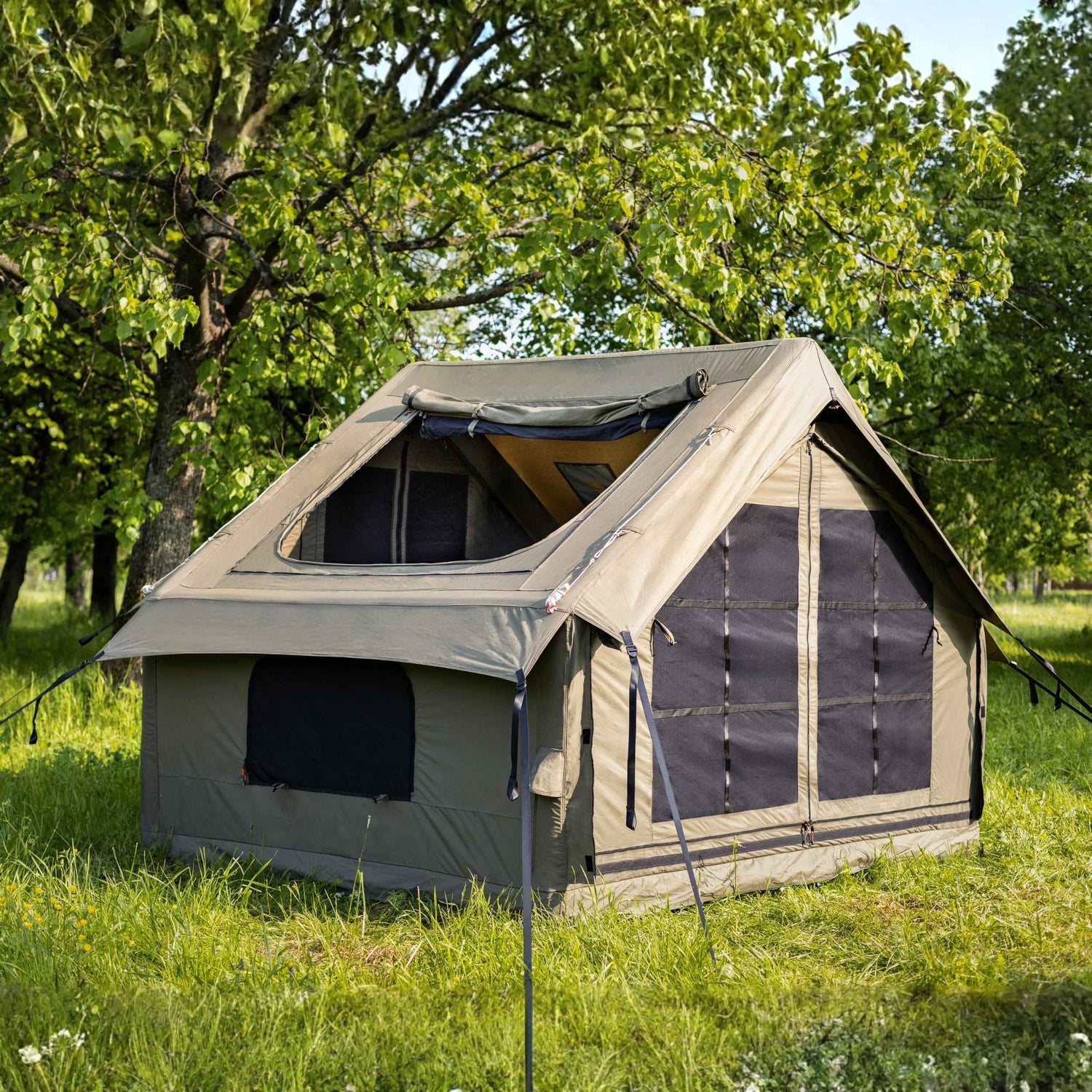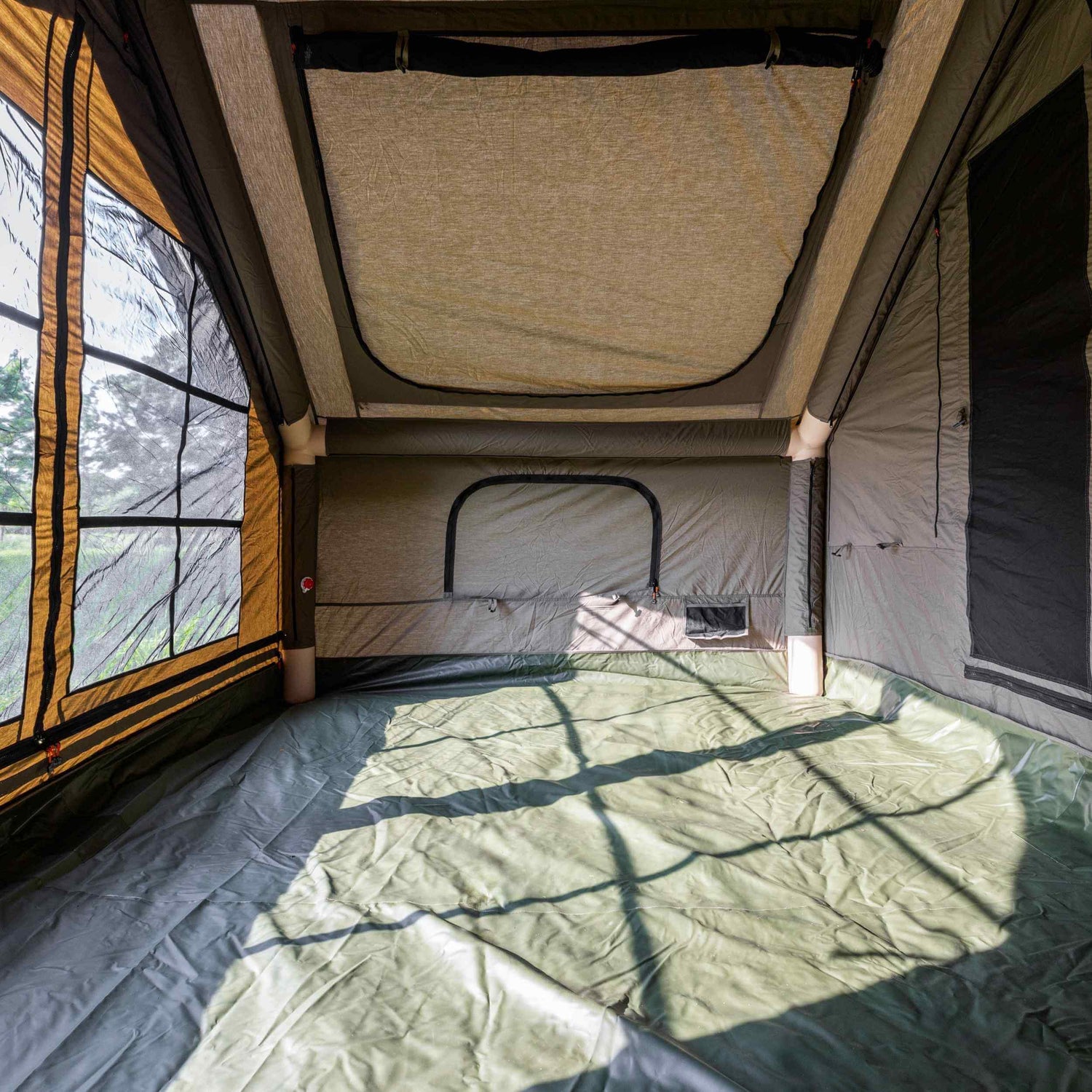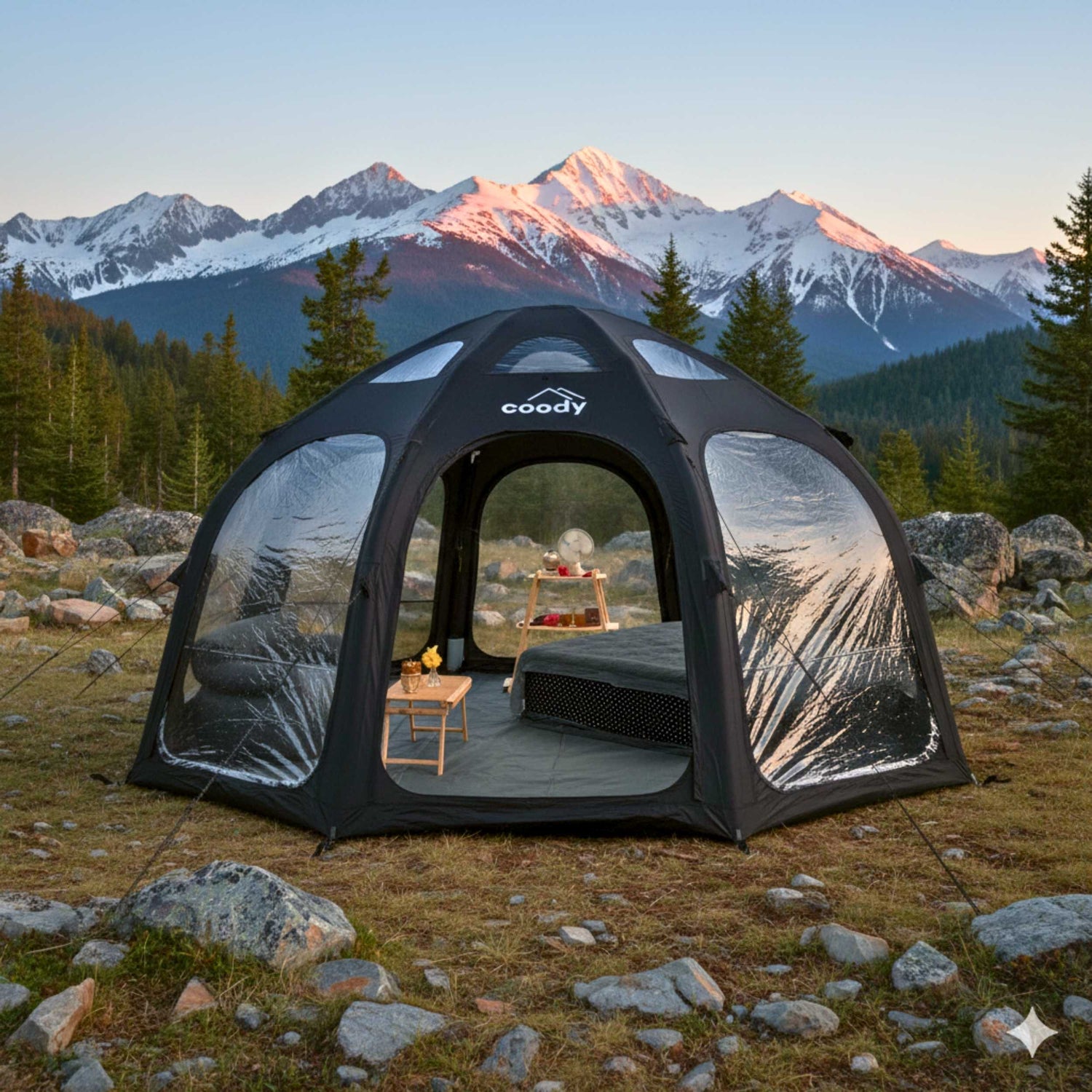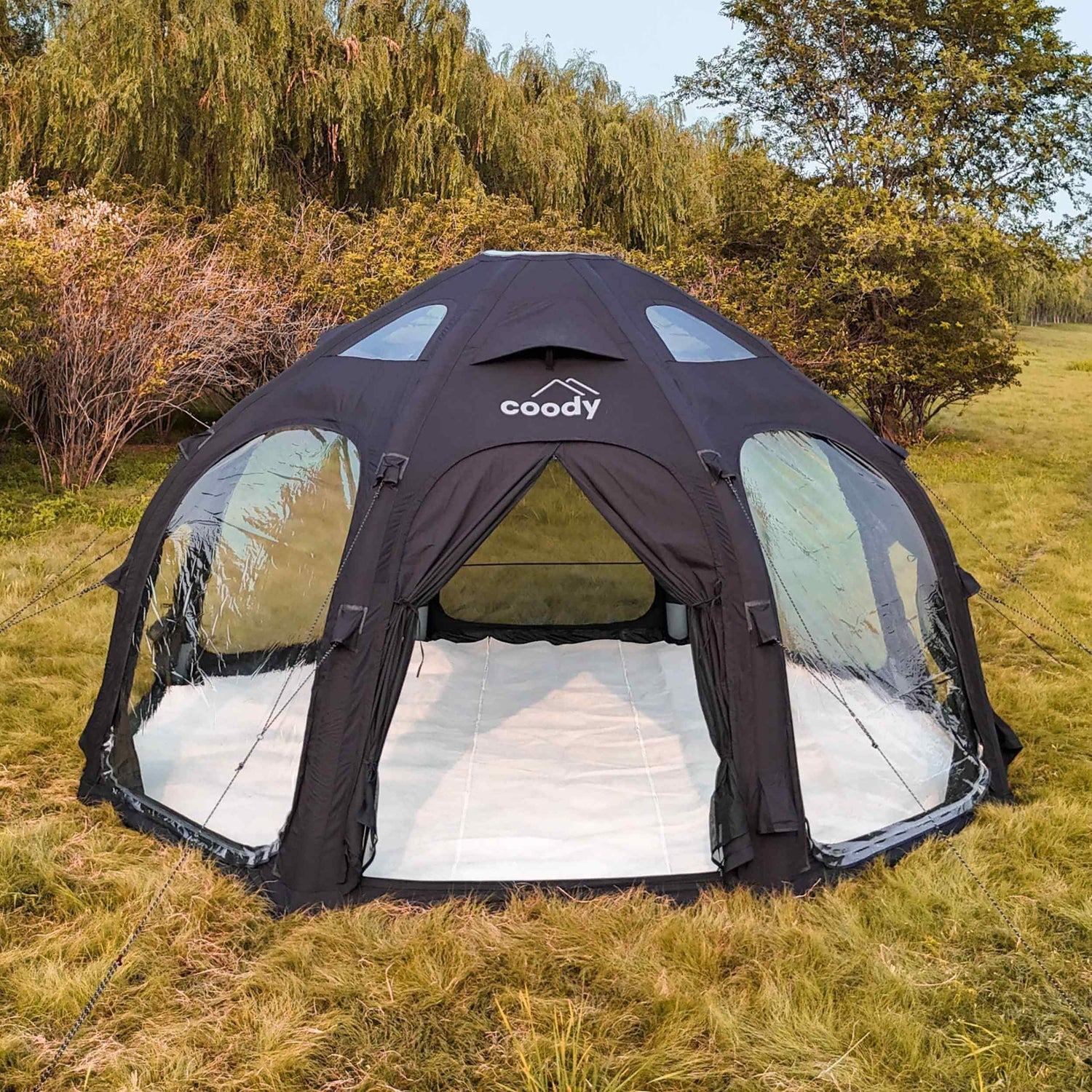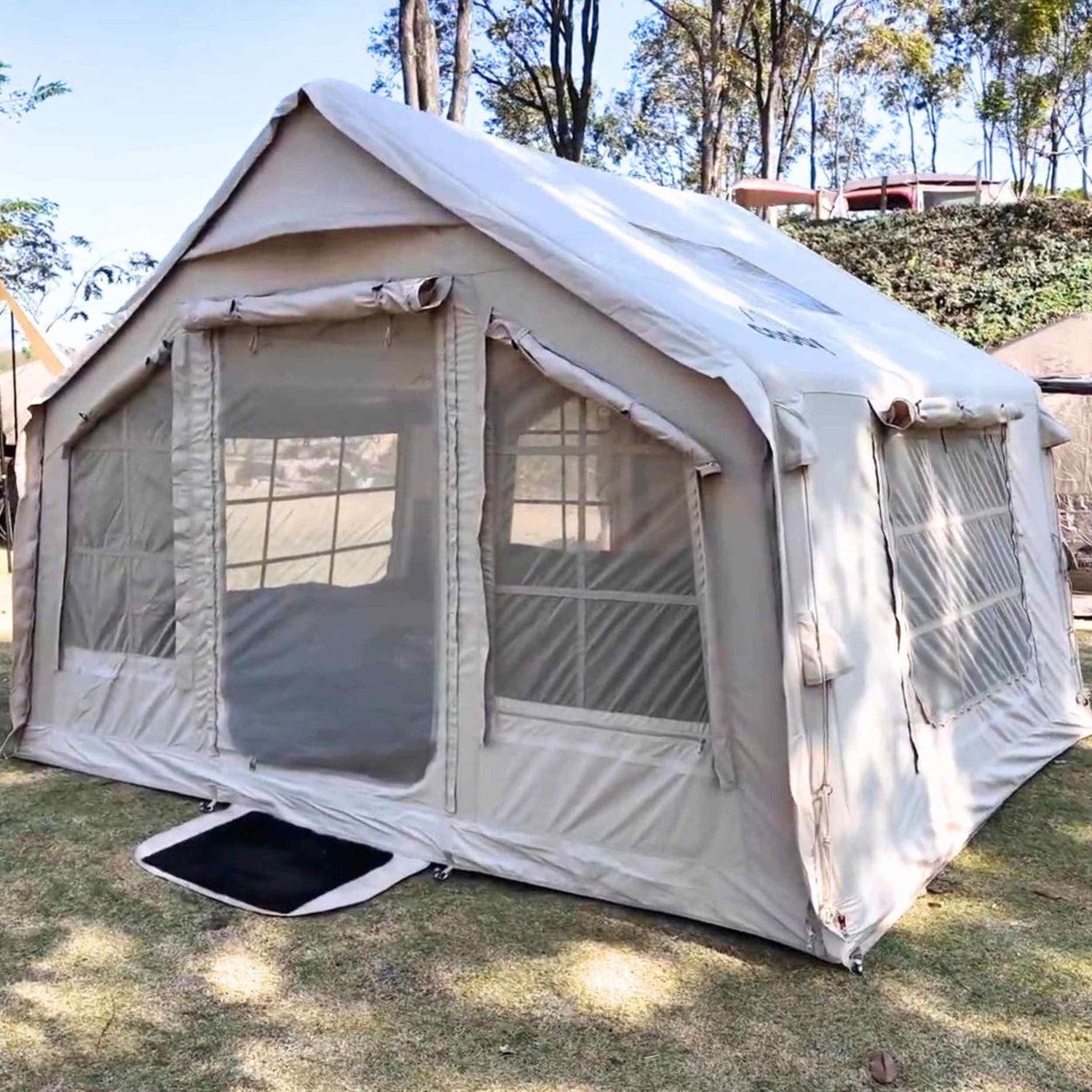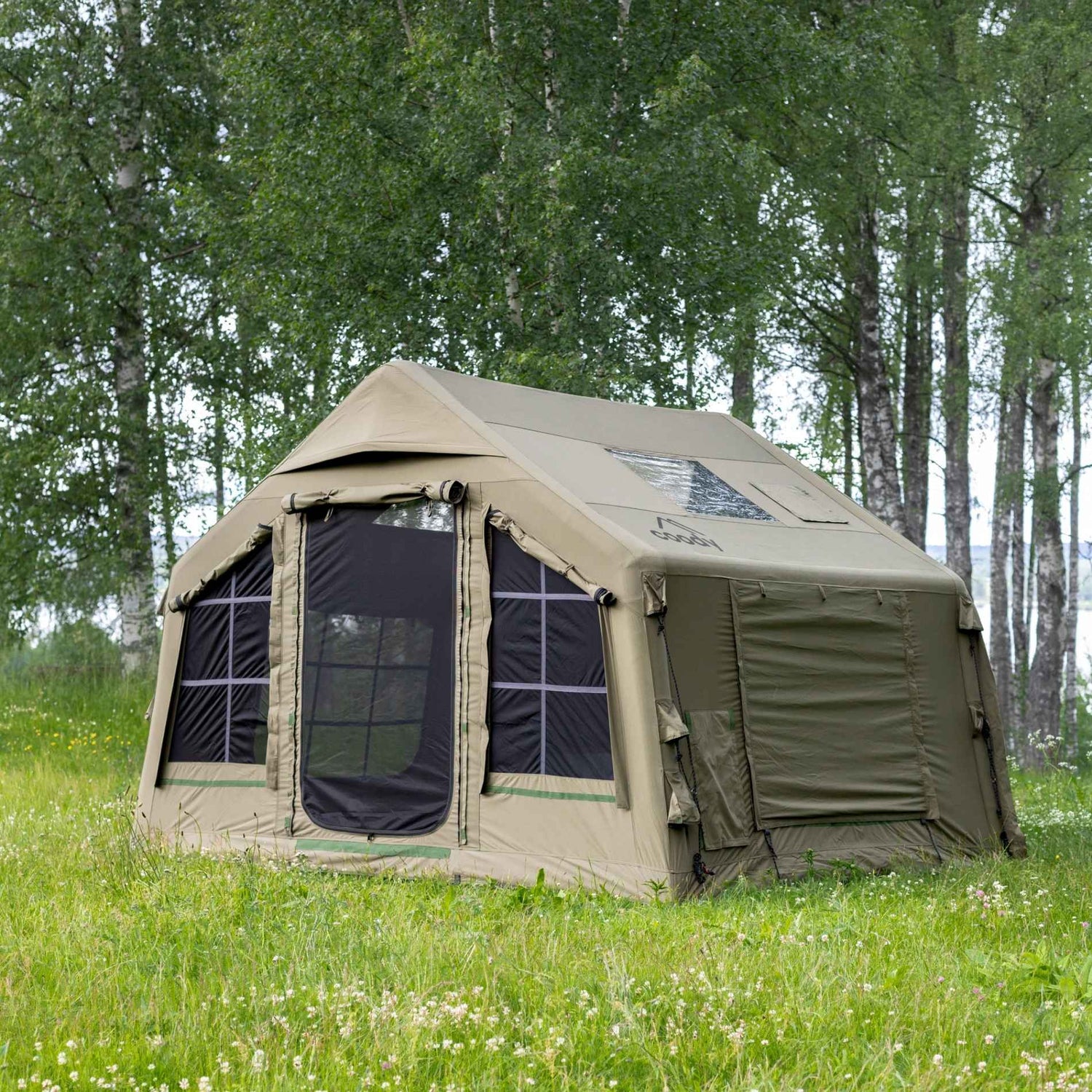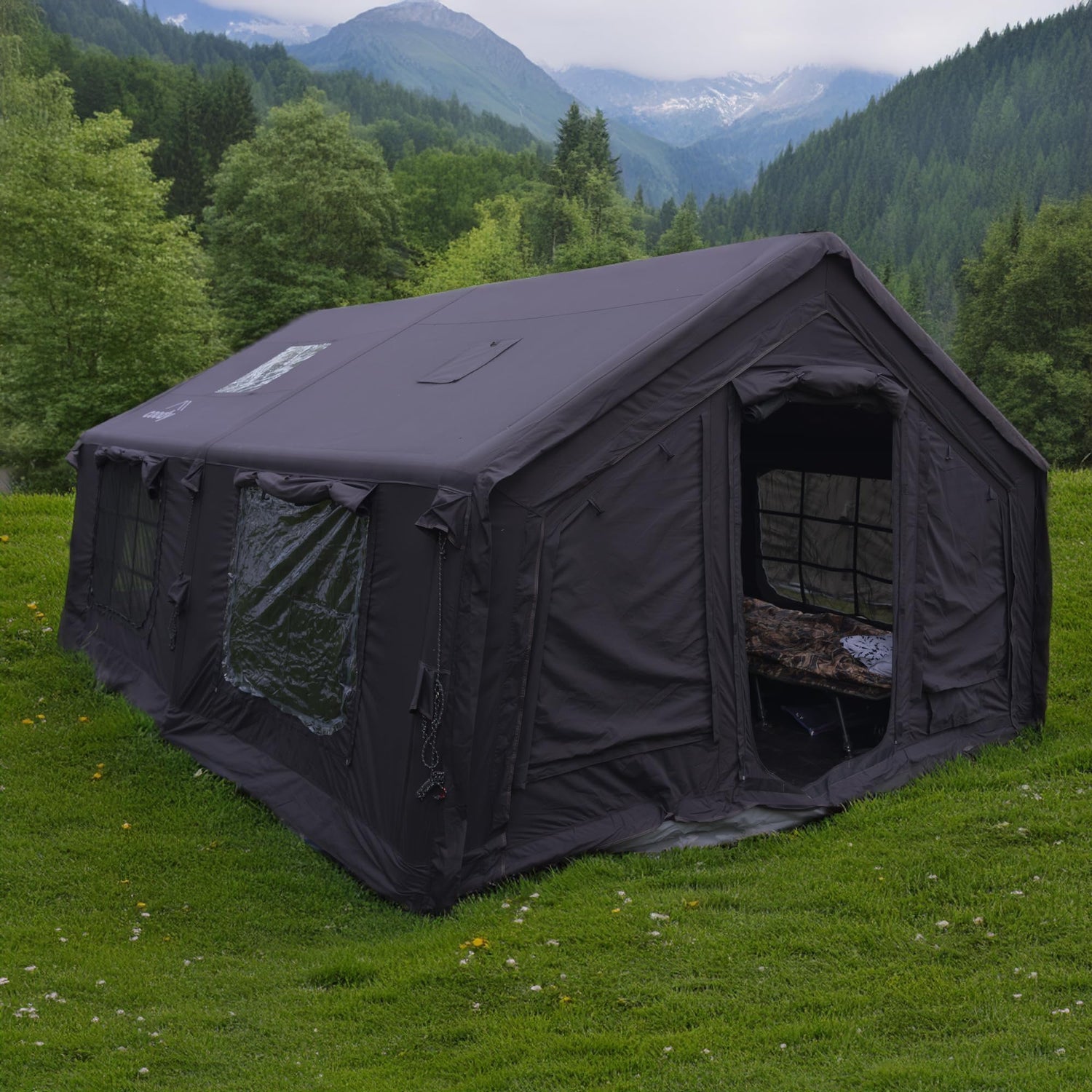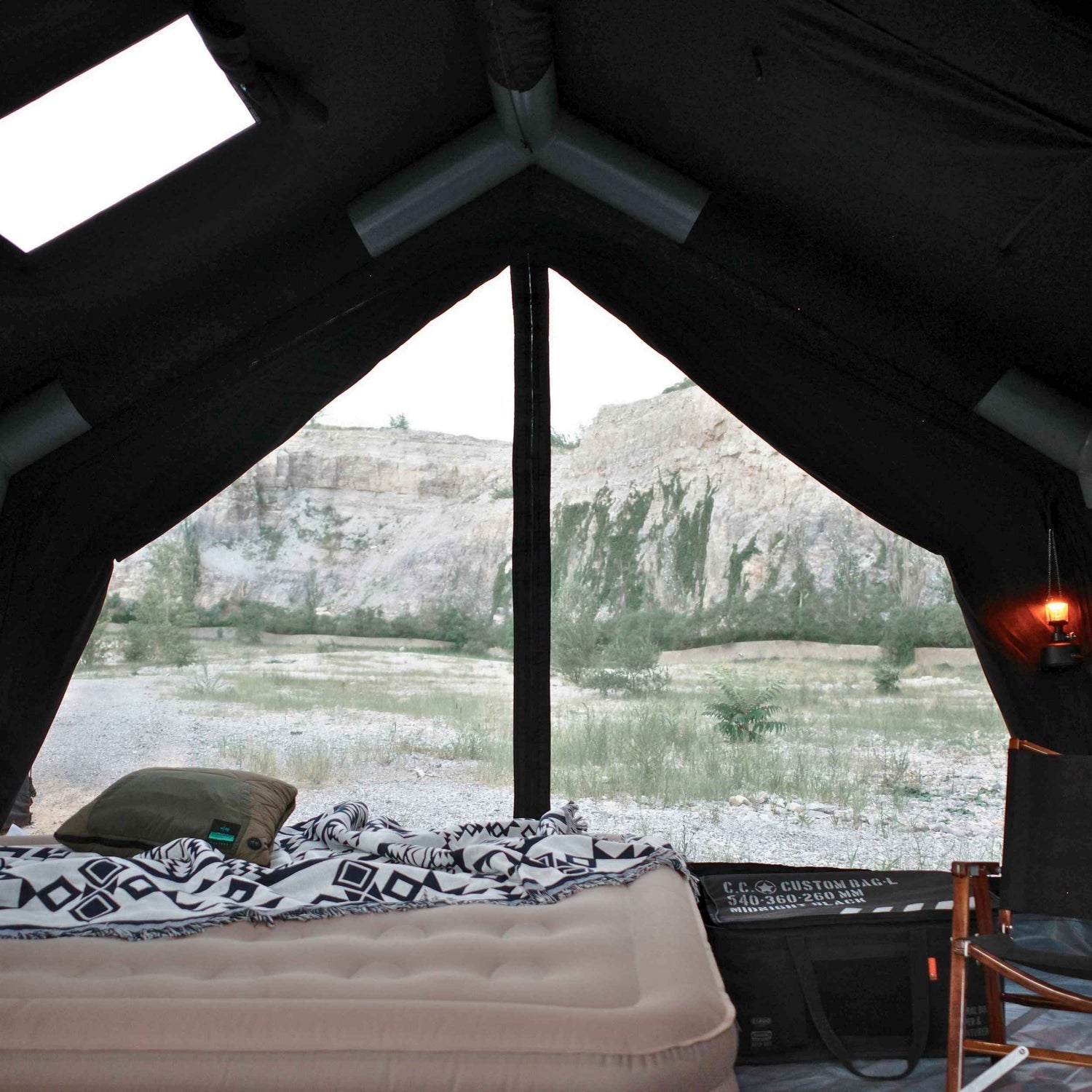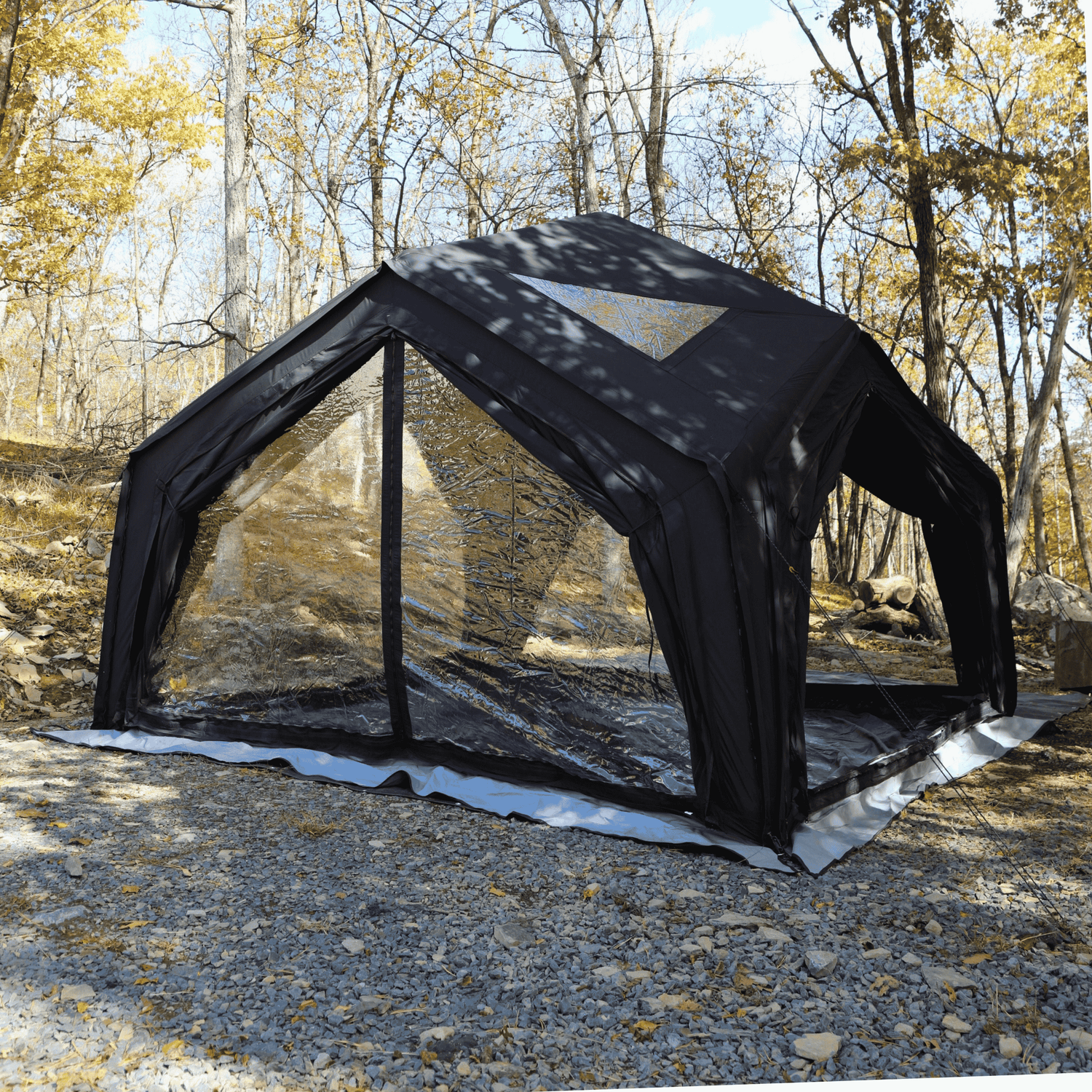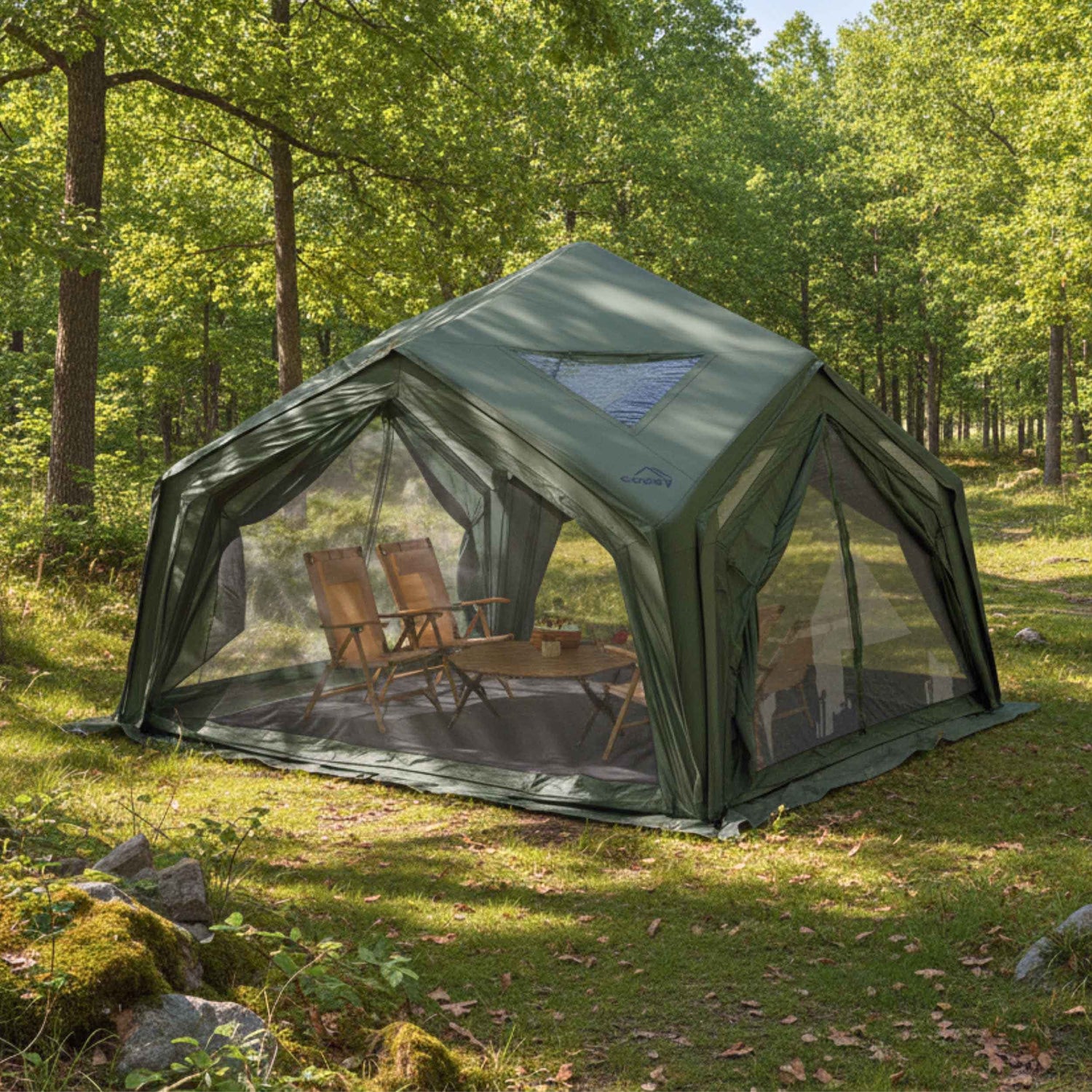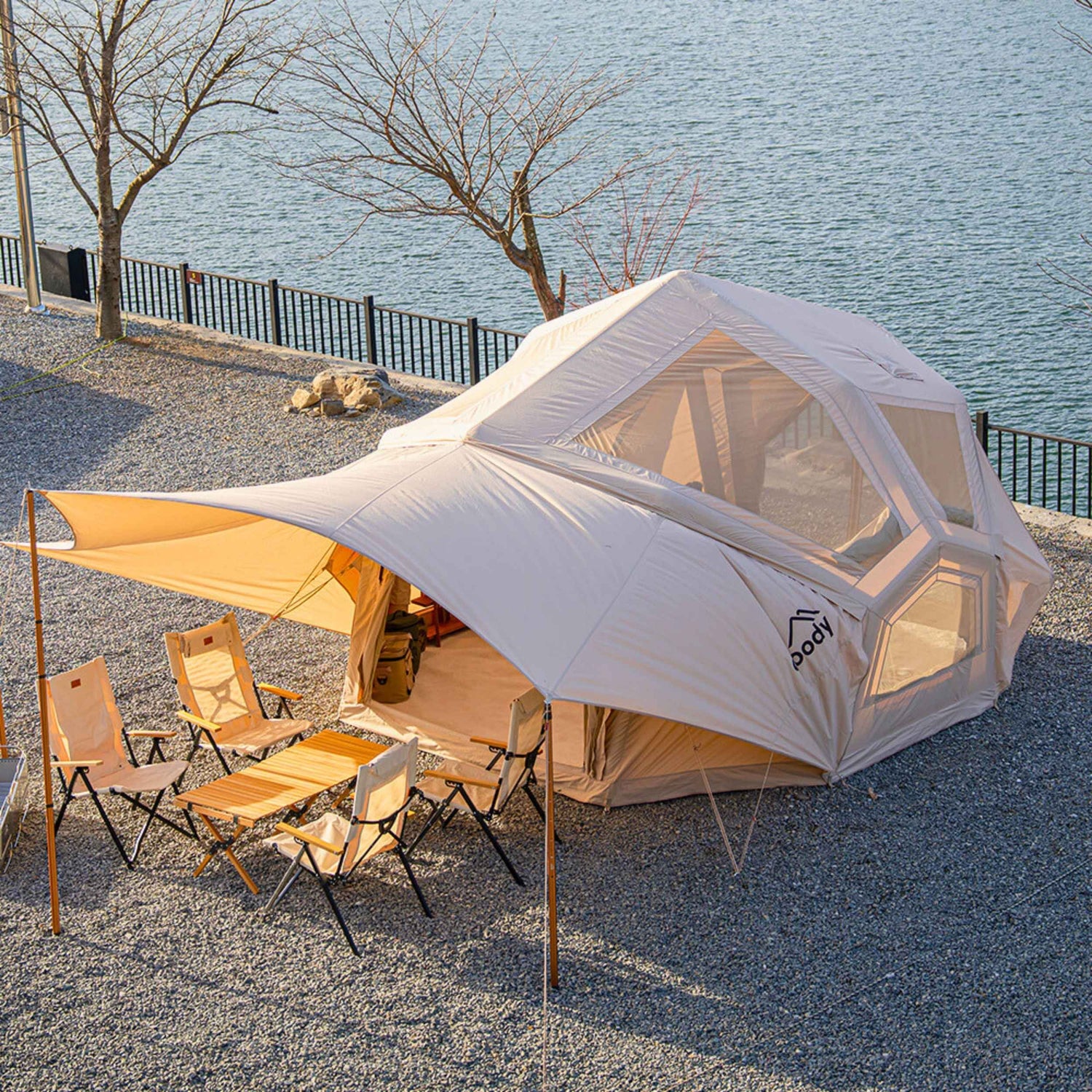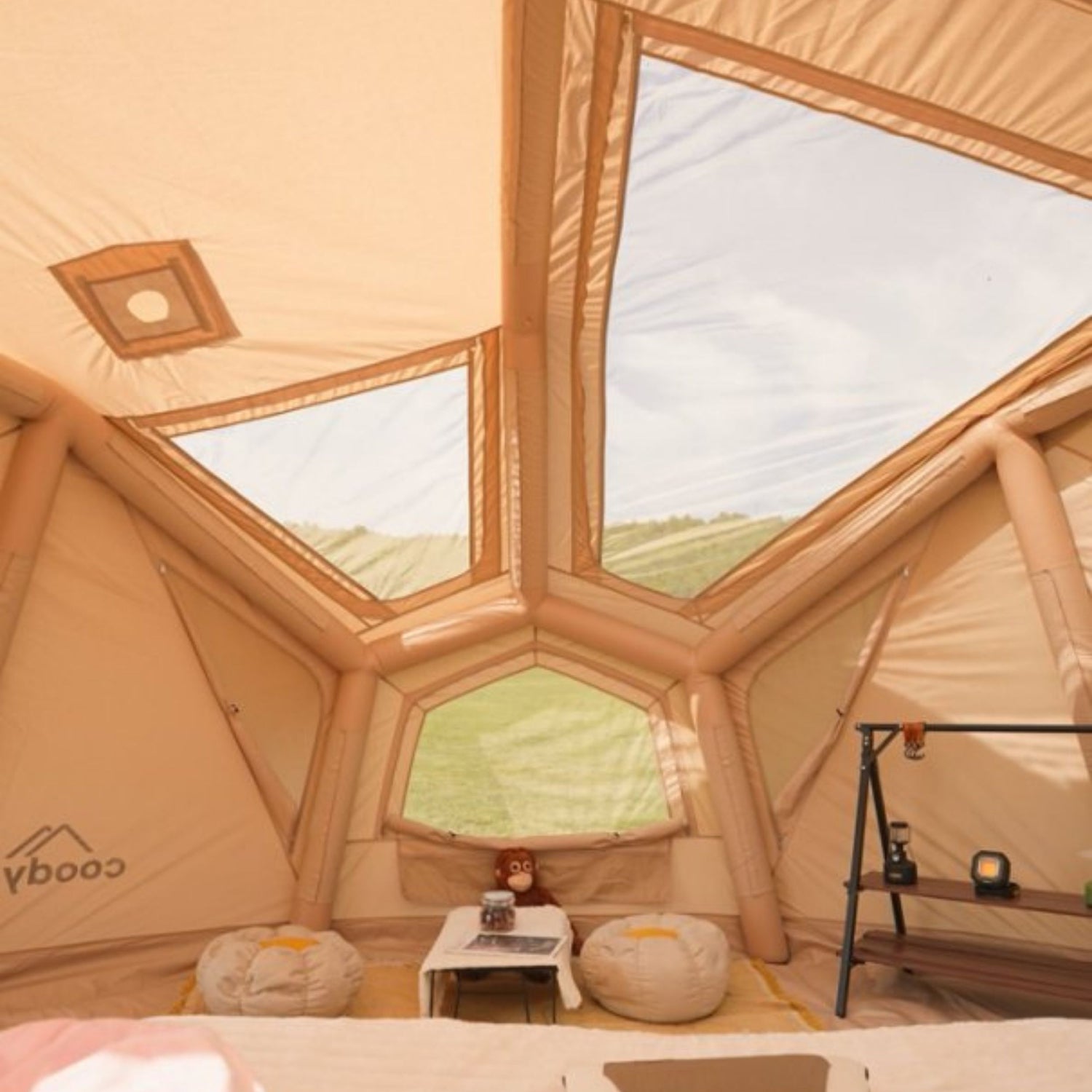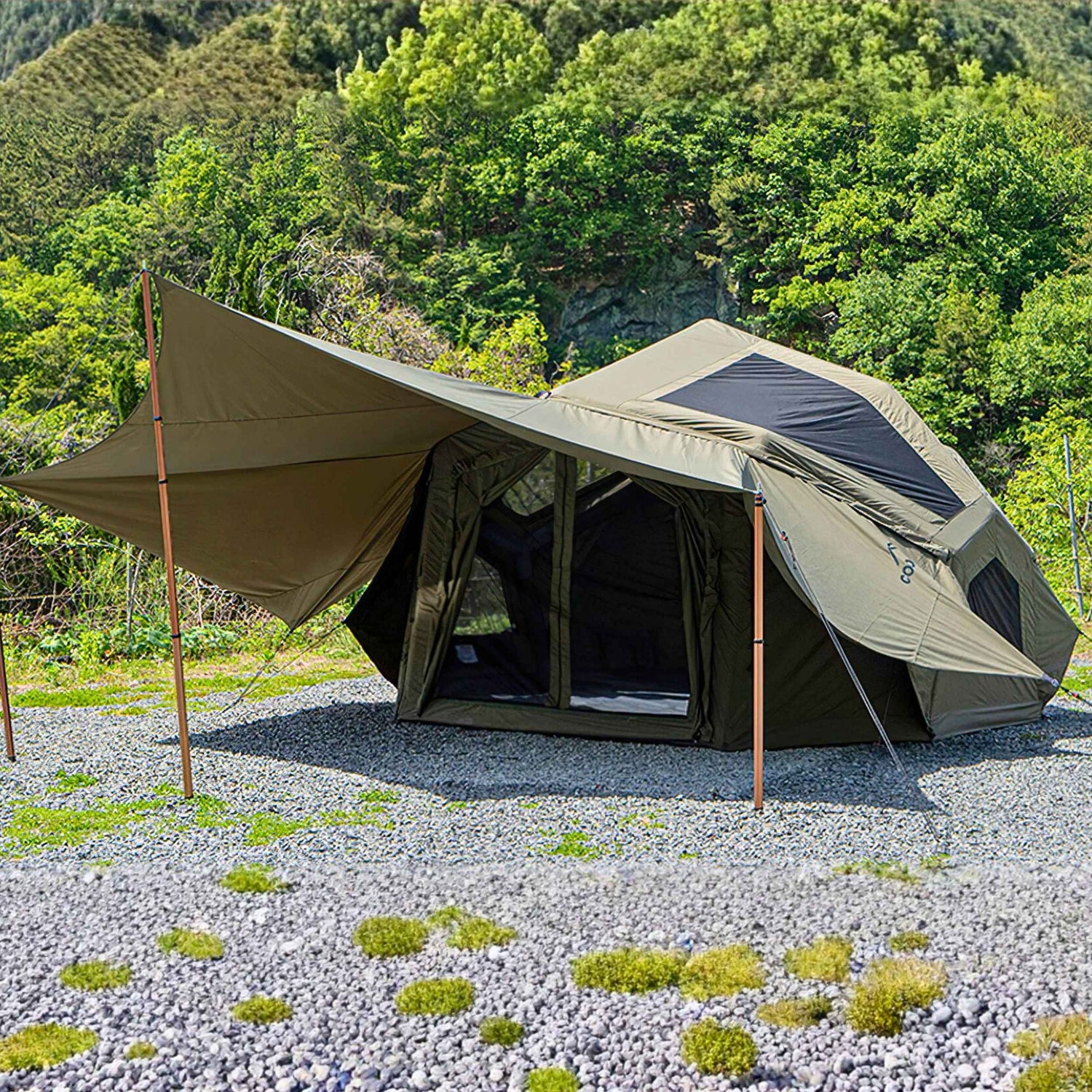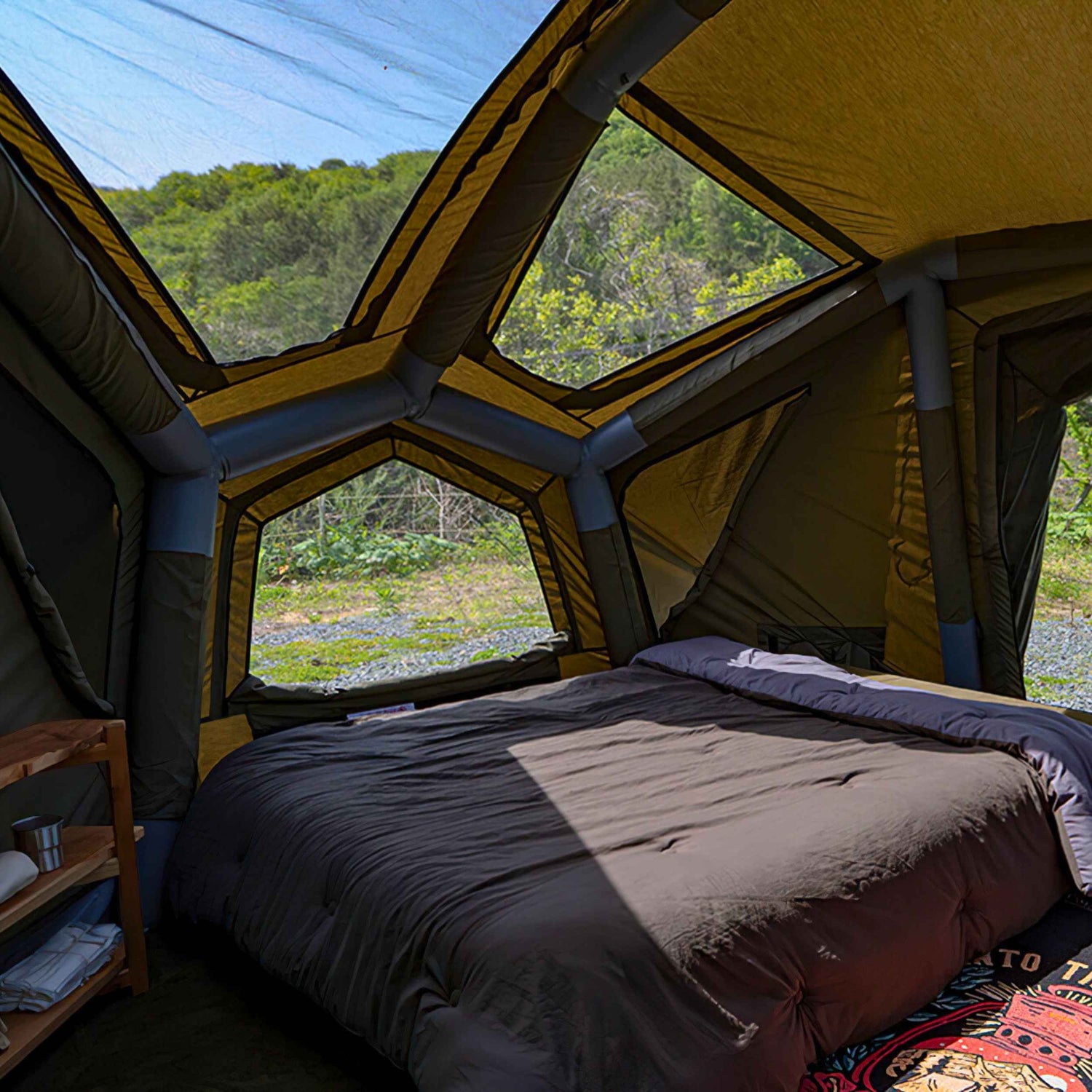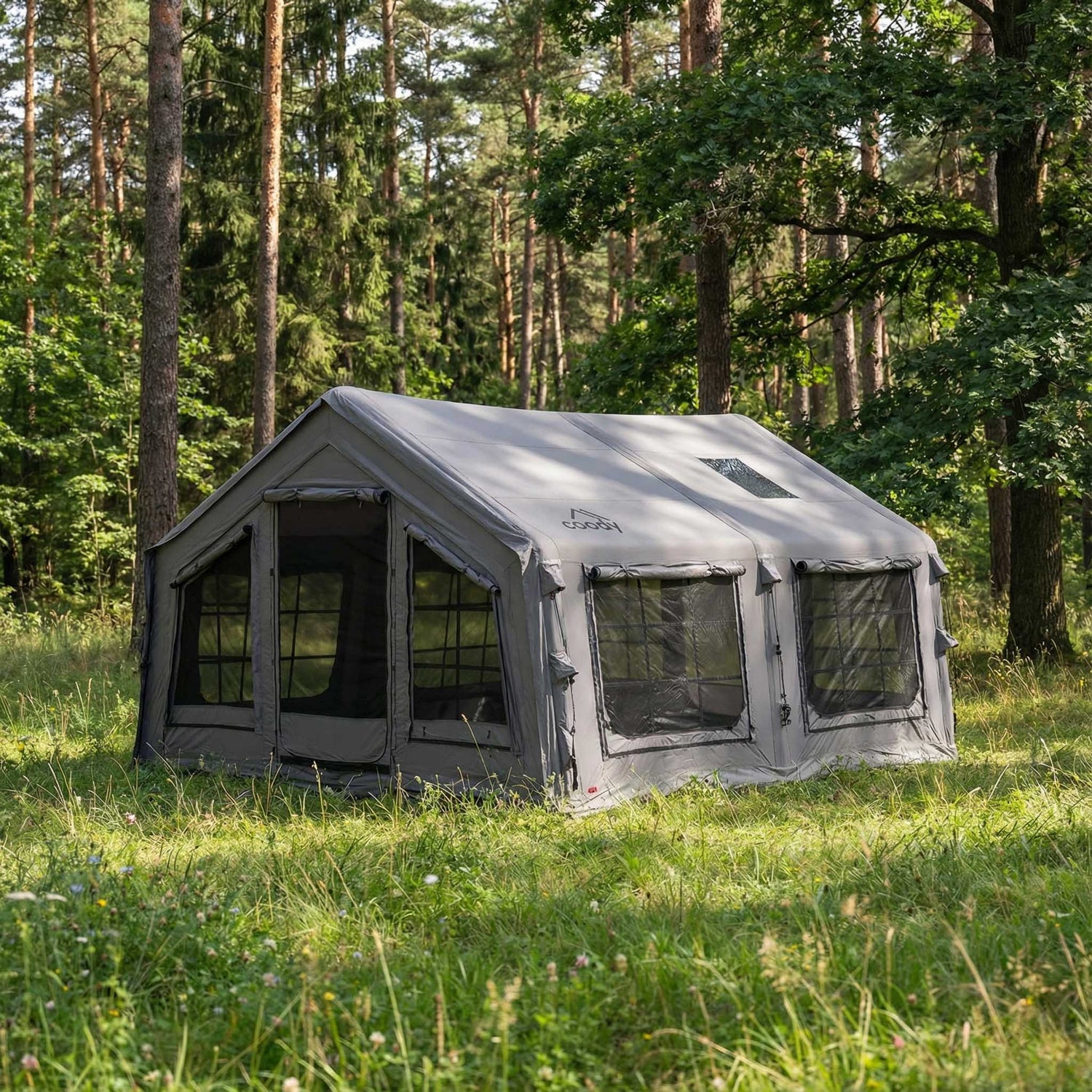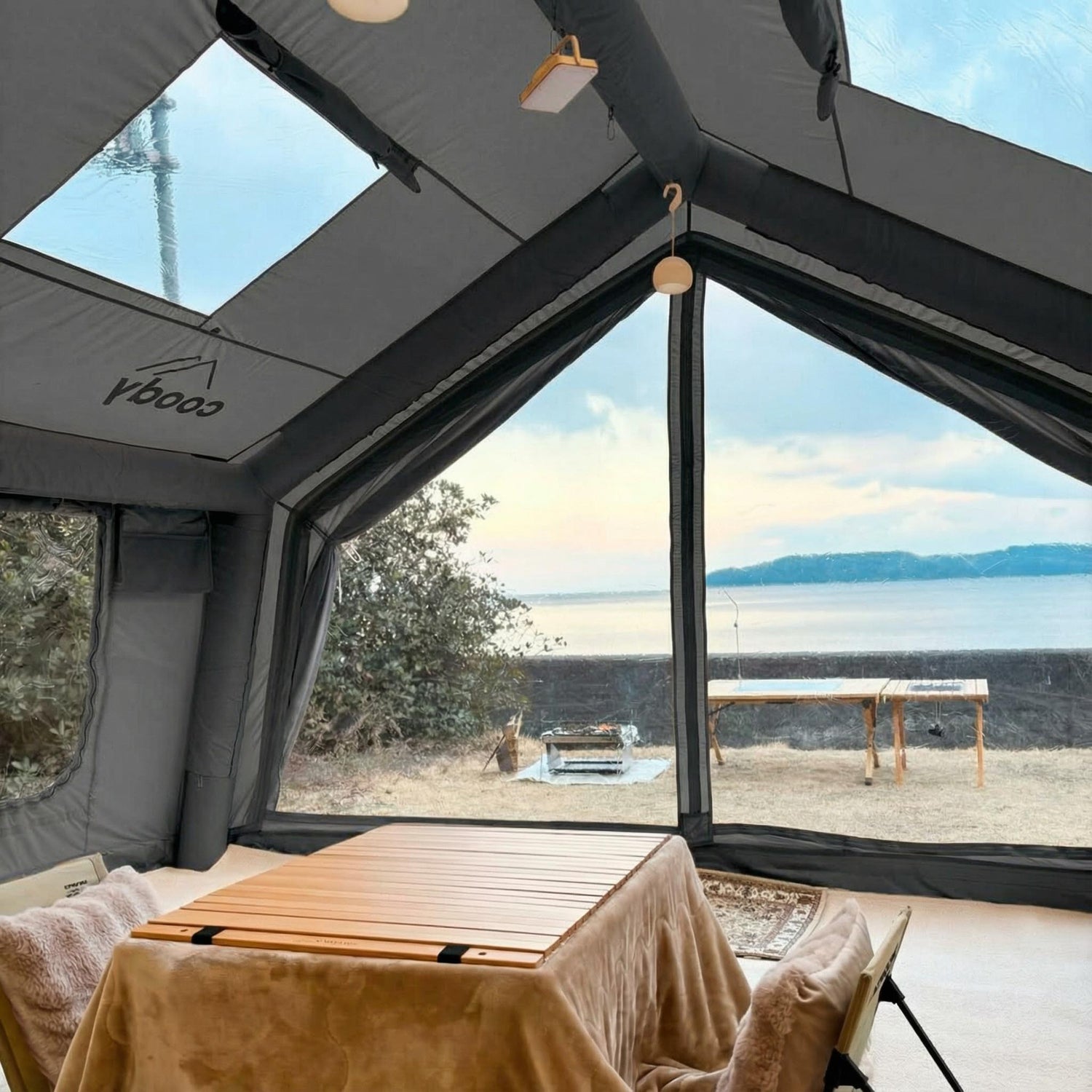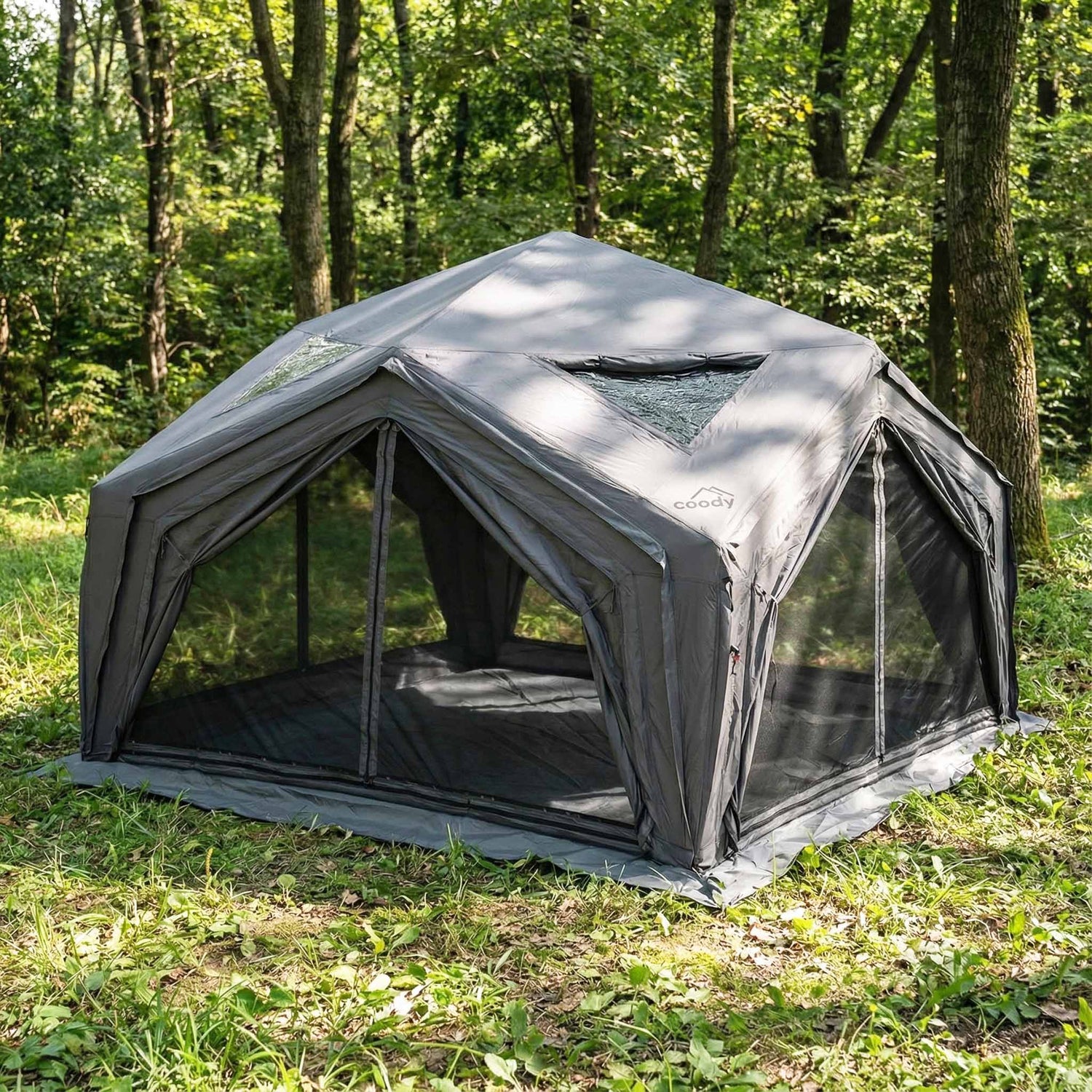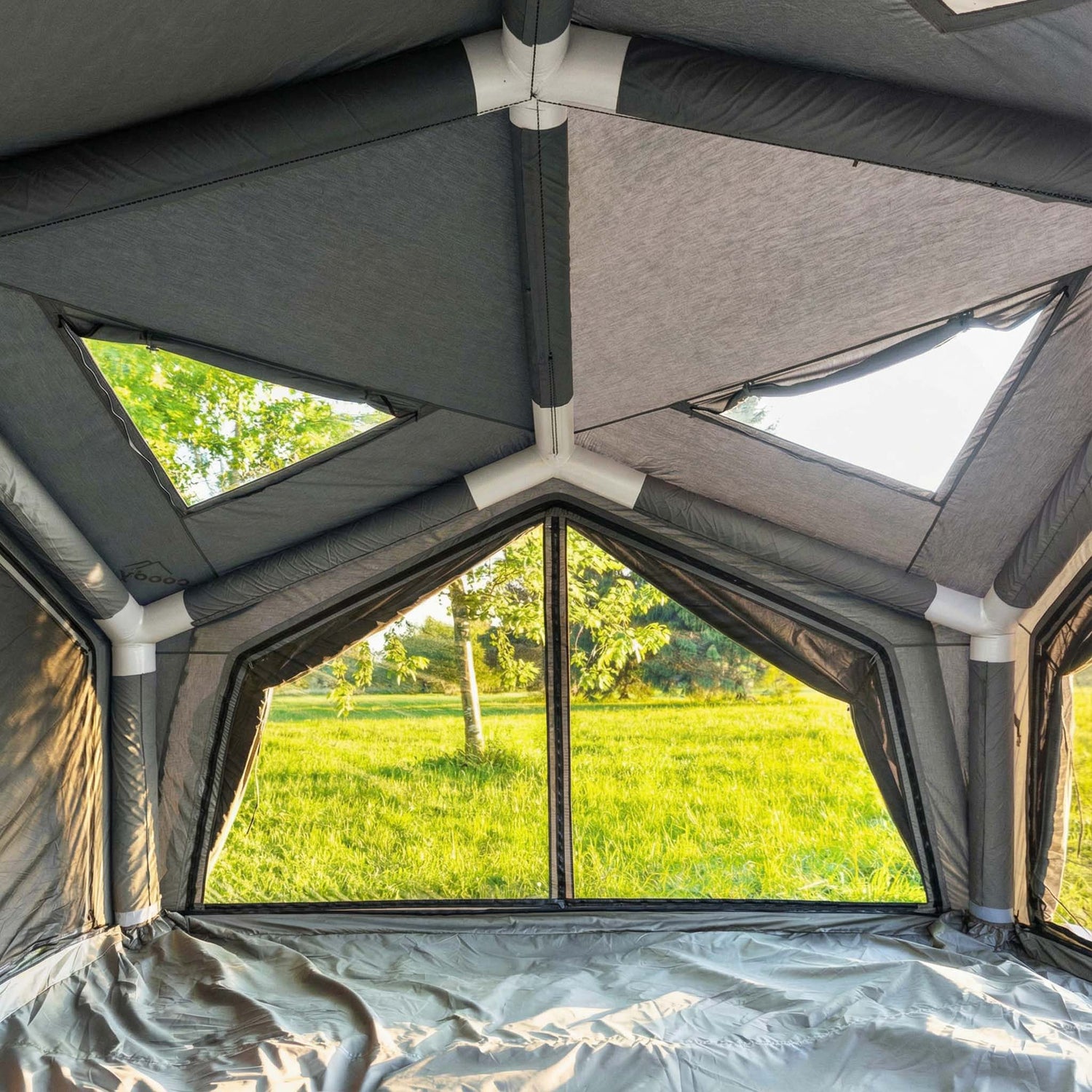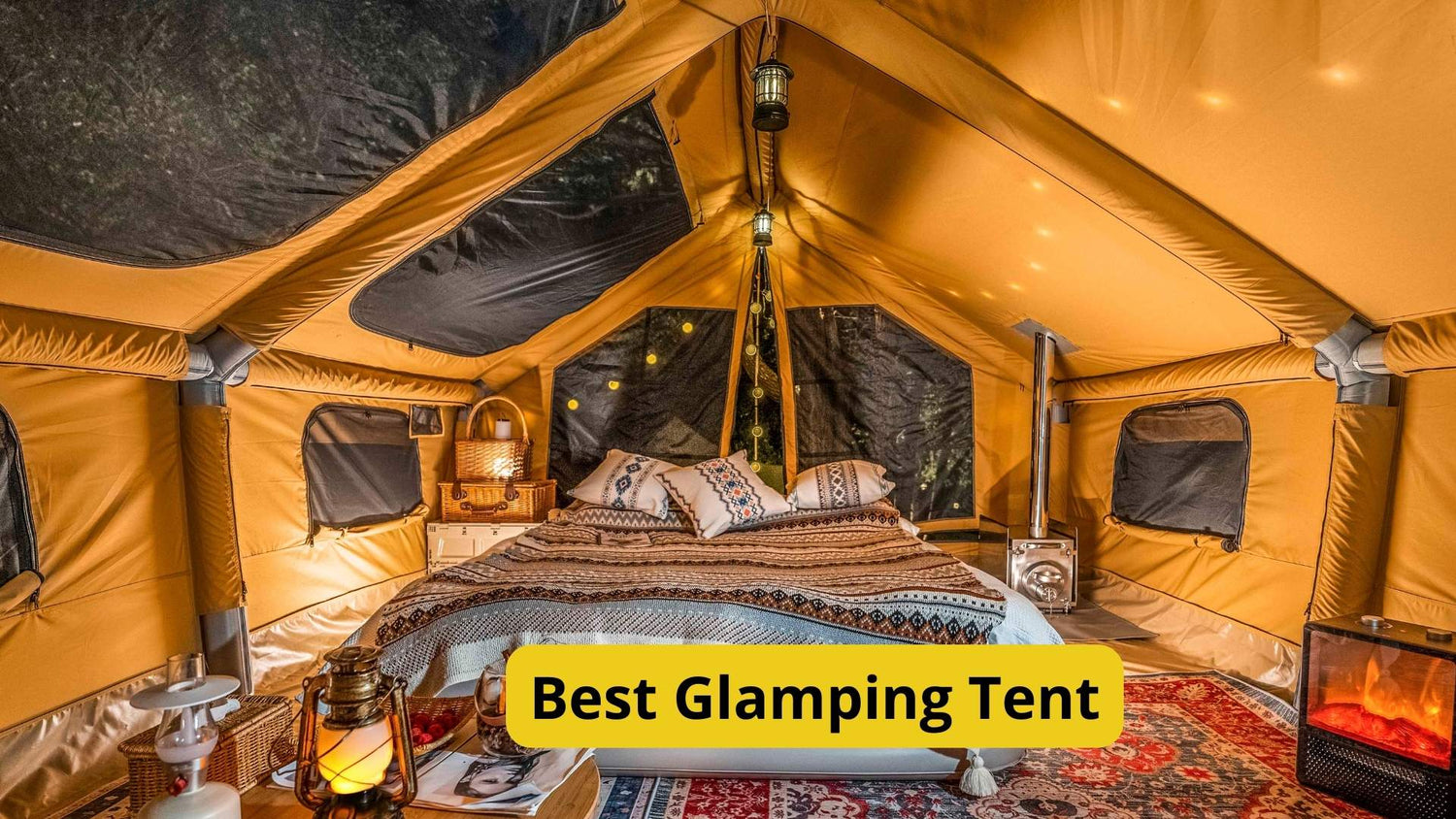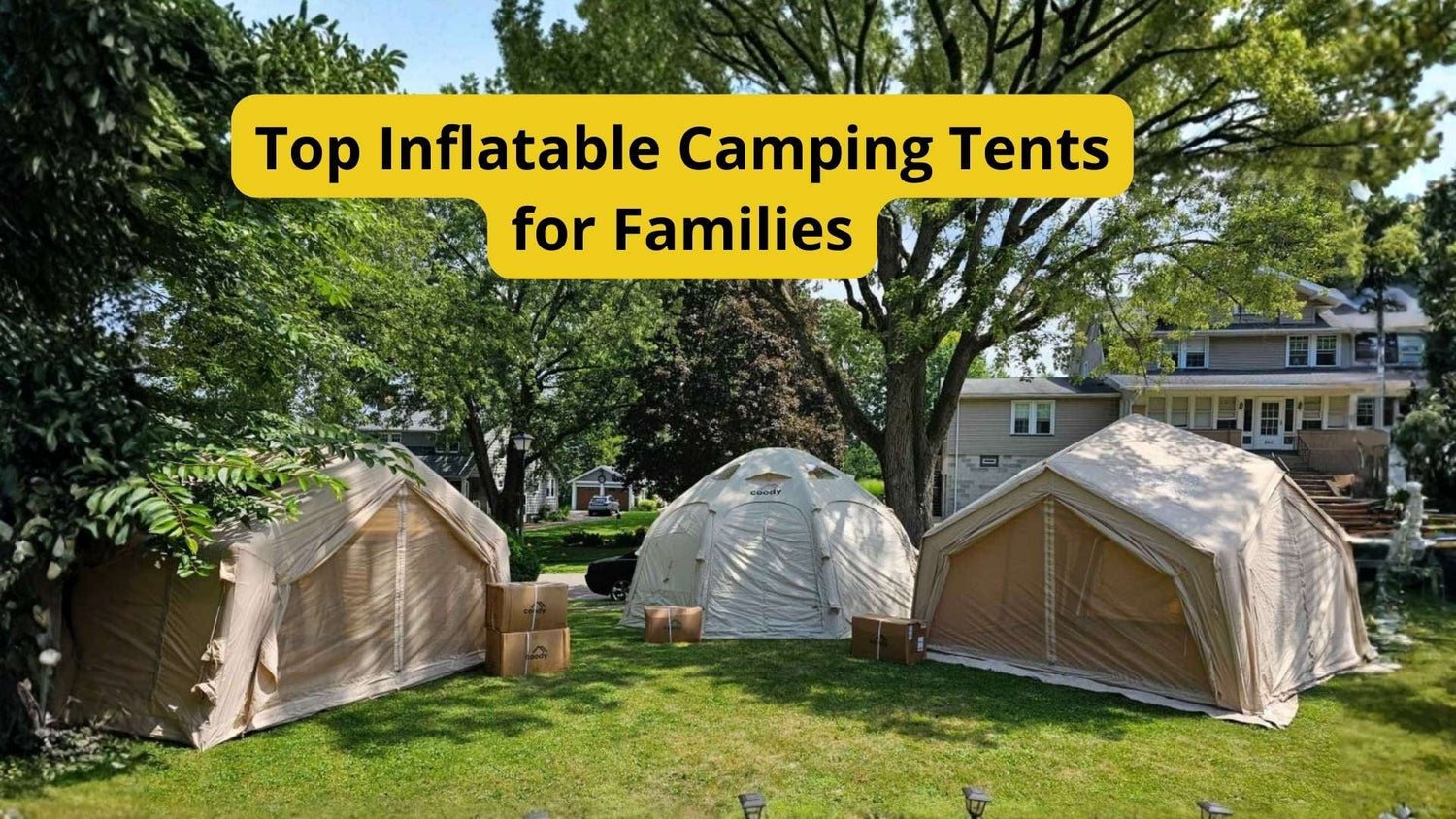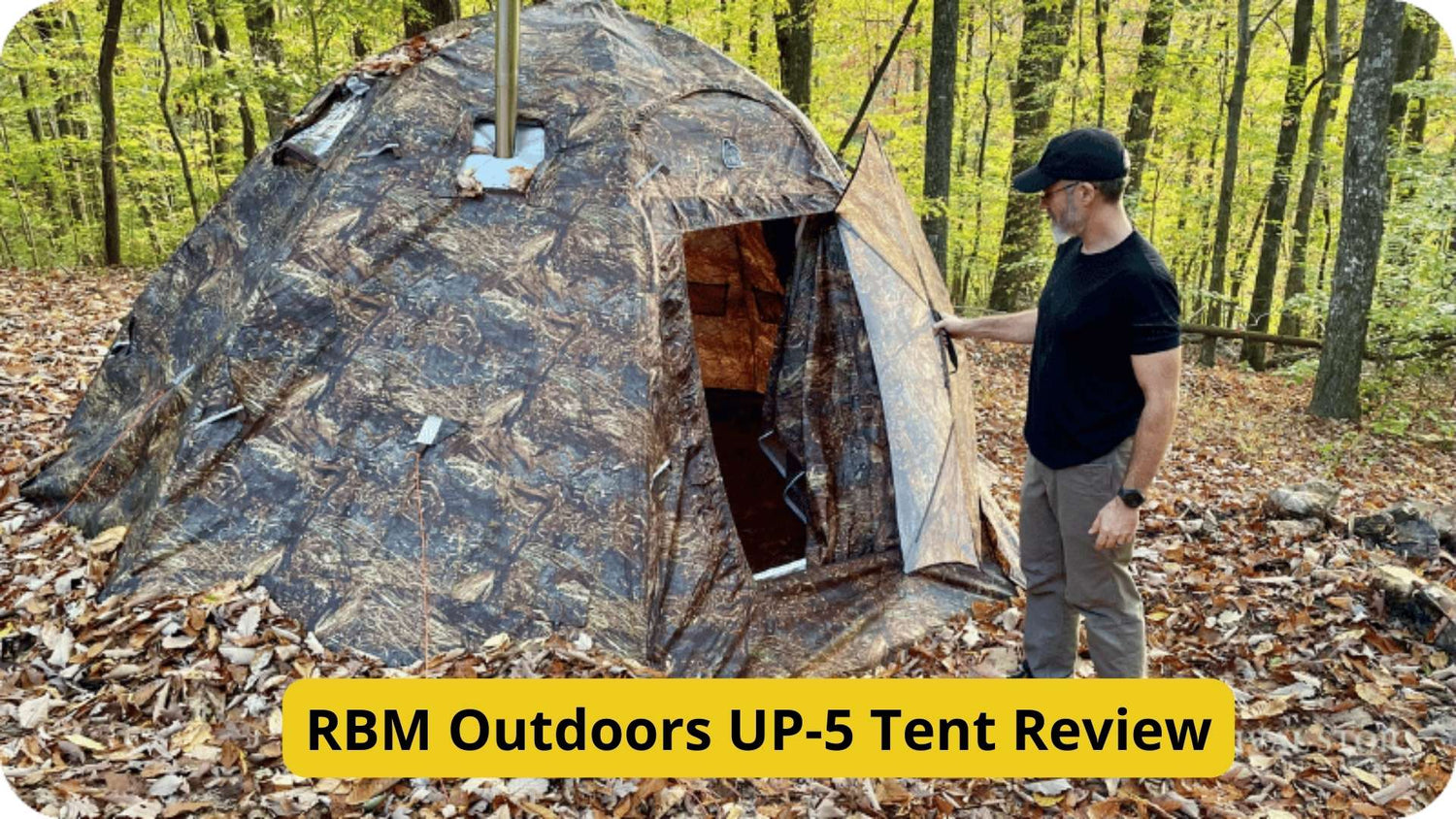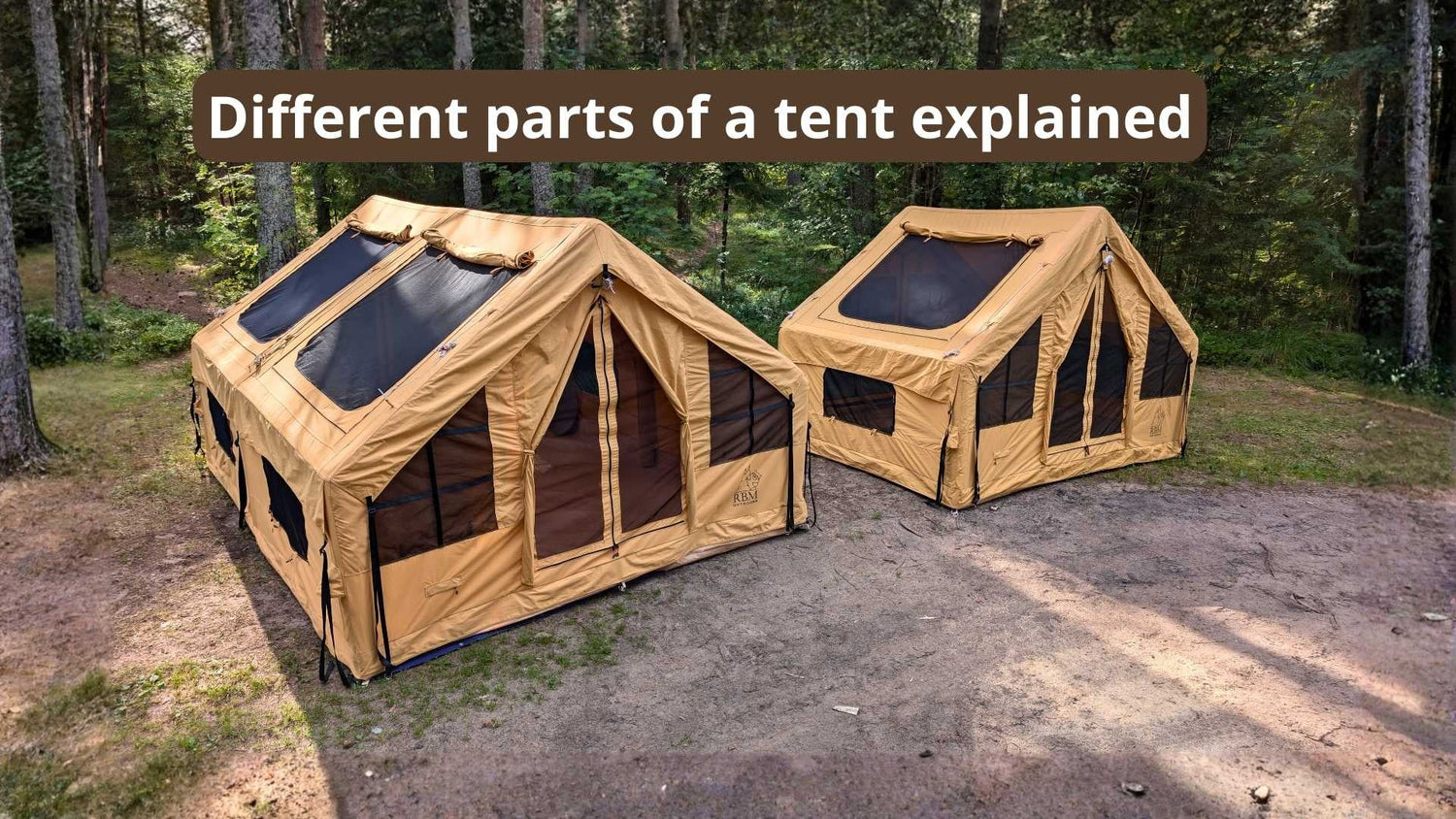1 Person 4 season Camping Tents
48 products
FilterRBM Outdoors UP-2 Mini - All-Seasons Double Layer Hot Tent for 1-3 person
Regular price
$1,089.00 USD
Regular price
RBM Outdoors Panda Medium Sunny Beige Inflatable tent for Camping (1-4 person)
Regular price
$1,089.00 USD
Regular price
RBM Outdoors Panda Medium Forest Green Inflatable Tent for Camping (1-4 person)
Regular price
$1,089.00 USD
Regular price
Coody Aurora Dome Black Luxury Inflatable Tent (2-4 person)
Regular price
$2,599.00 USD
Regular price
Coody 8.0 Beige Inflatable Tent for Camping (1-4 person)
Regular price
$1,259.00 USD
Regular price
Coody 8.0 Forest Green Inflatable Tent for Camping (1-4 person)
Regular price
$1,259.00 USD
Regular price
Coody 10.0 Black Inflatable Tent for Camping (2-4 person)
Regular price
$1,599.00 USD
Regular price
Coody 13.6 (Koala-5) Black Inflatable Tent for Camping (2-8 person)
Regular price
$1,899.00 USD
Regular price
Coody | RBM Hub Shelter Inflatable Tent for 2-6 Person (Black)
Regular price
$1,949.00 USD
Regular price
Coody Hub Shelter Forest Green- Inflatable Tent for Camping (2-6 Person)
Regular price
$1,949.00 USD
Regular price
RBM Outdoors UP-5 - All-Seasons Double Layer Hot Tent for 2-6 person
Regular price
$1,989.00 USD
Regular price
RBM Outdoors UP-2 - All-Seasons Double Layer Hot Tent for 2-4 person
Regular price
$1,599.00 USD
Regular price
Coody | RBM Bestona Inflatable Tent for 2-4 Person (Beige)
Regular price
$1,999.00 USD
Regular price
Coody | RBM Bestona Inflatable Tent for 2-4 Person (Forest Green)
Regular price
$1,999.00 USD
Regular price
Coody 13.6 (Koala-5) Gray Inflatable Tent House for Camping (2-8 person)
Regular price
$1,899.00 USD
Regular price
Coody | RBM Hub Shelter Inflatable Tent for 2-6 Person (Gray)
Regular price
$1,949.00 USD
Regular price

